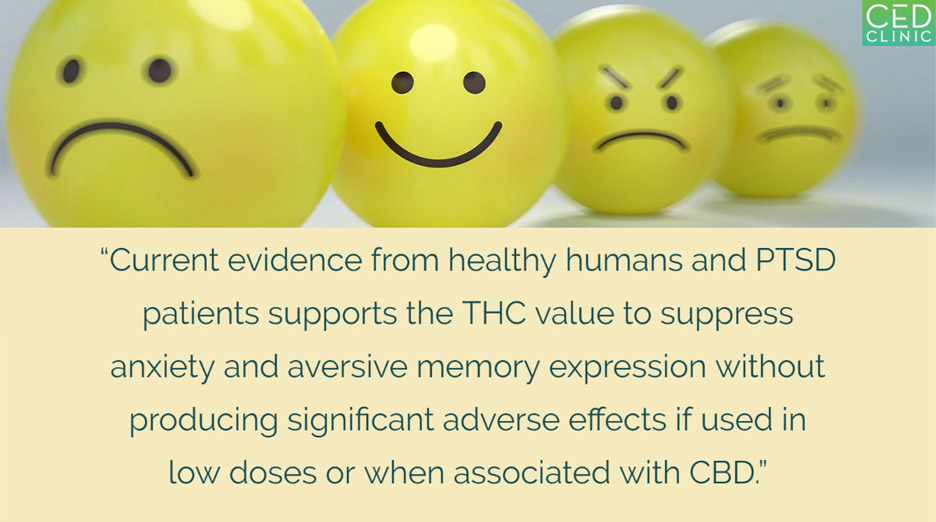Effects of Δ9-tetrahydrocannabinol on aversive memories and anxiety: a review from human studies
In Summary:
Post traumatic stress disorder (PTSD) is a mental disorder that arises after a person experiences or witnesses a terrifying event. Its symptoms include nightmares or invasive memories of the trauma, excessive avoidance of situations that bring back these memories, heightened reactions, anxiety, or depressed mood and can last for months or years. Some PTSD patients have recreationally used cannabis to ease their symptoms. However, whether and how cannabis or its main psychologically active component, Δ9-tetrahydrocannabinol (THC) attenuates the aversive, traumatic memory and associated anxiety remained largely unknown until very recently.
In the first large-scaled review of effects of THC on aversive memory and anxiety in PTSD patients, researchers found evidence that THC, dronabinol (the synthetic form of THC), and nabilone (a synthetic analog of THC) indeed help alleviate anxiety, insomnia, and over-generalized, heightened arousal as well as facilitate fear memory extinction when used at low doses. Additionally, at such dose, these compounds also don’t induce a psychotic effect. However, high doses of these substances don’t have the same benefit while causing psychotic symptoms. The scientists also noted that most currently available clinical studies evaluated the acute effects of THC only, and we lack data on whether chronic treatment with cannabis-derived medicine is still advantageous for PTSD patients.
By and large, documented findings do suggest cannabis-derived medicine can aid in extinguishing aversive memory and alleviating associated anxiety, making it a potential candidate for PTSD therapeutic strategy. Still, we should be cautious and seek future studies that address open questions related to its optimal dose and prolonged efficacy.

